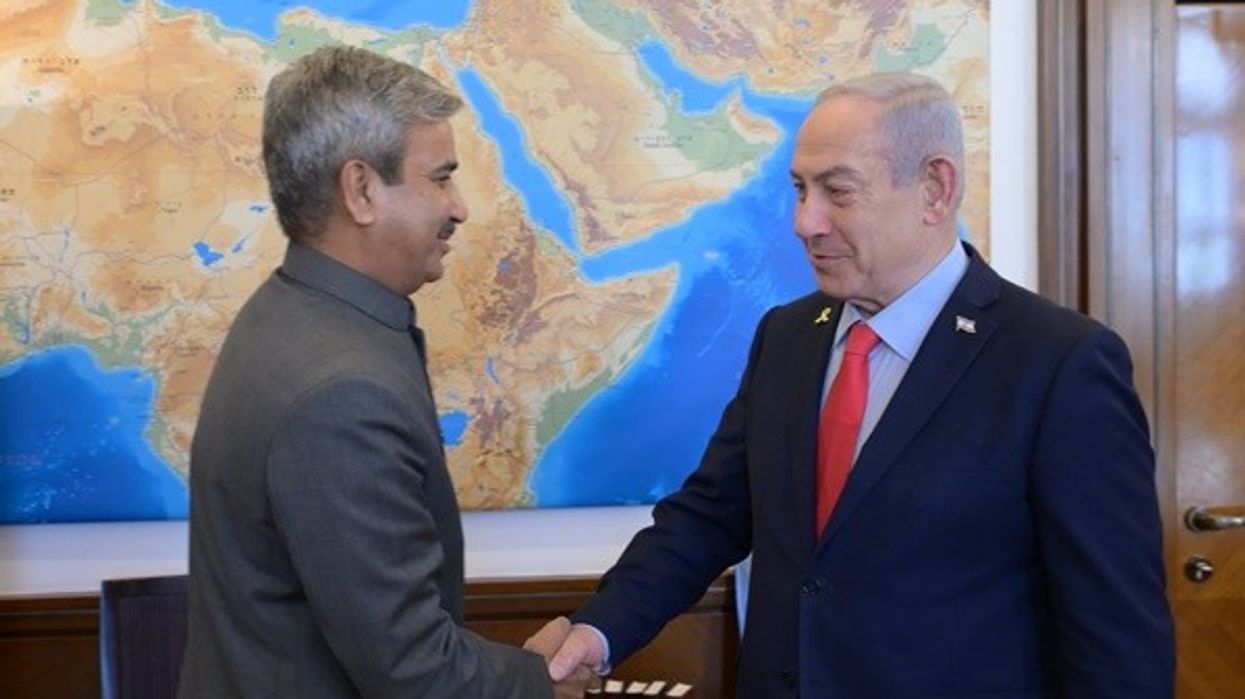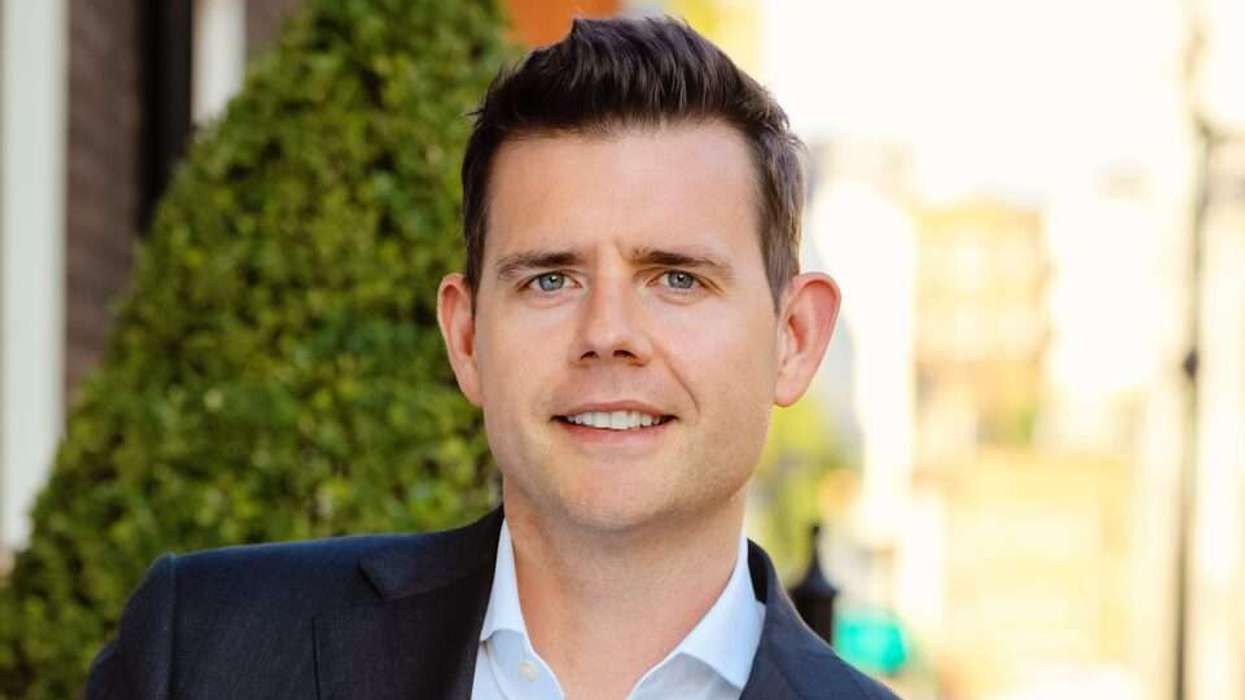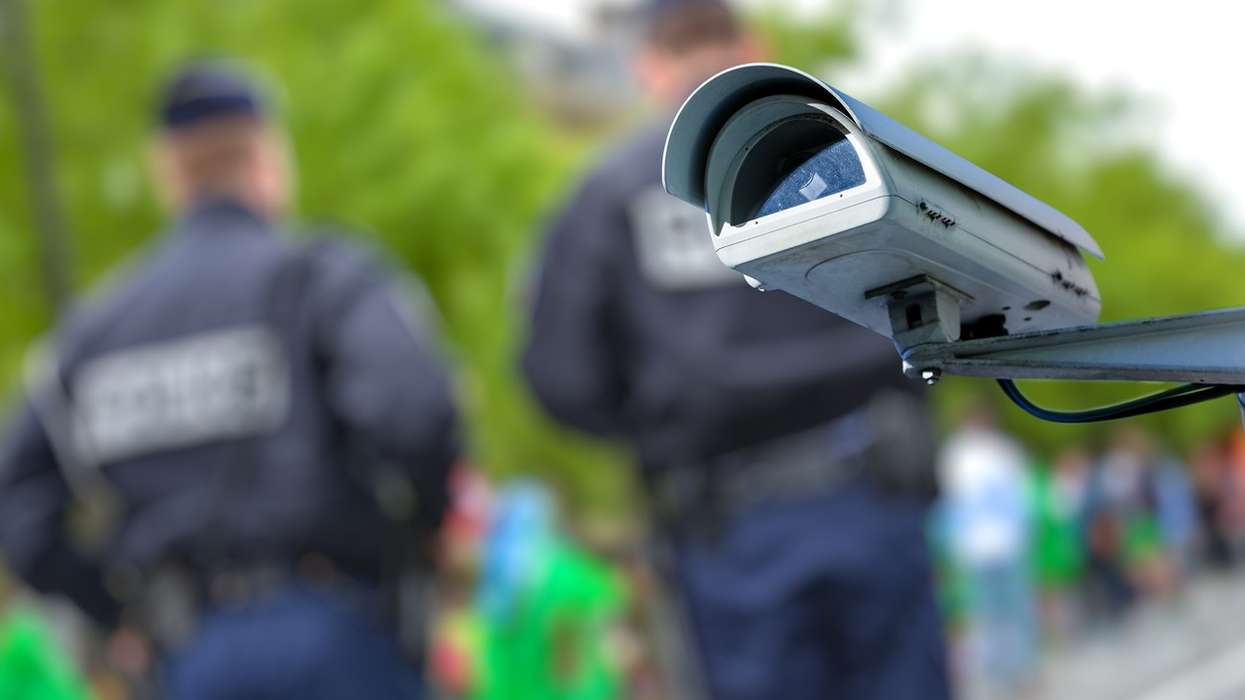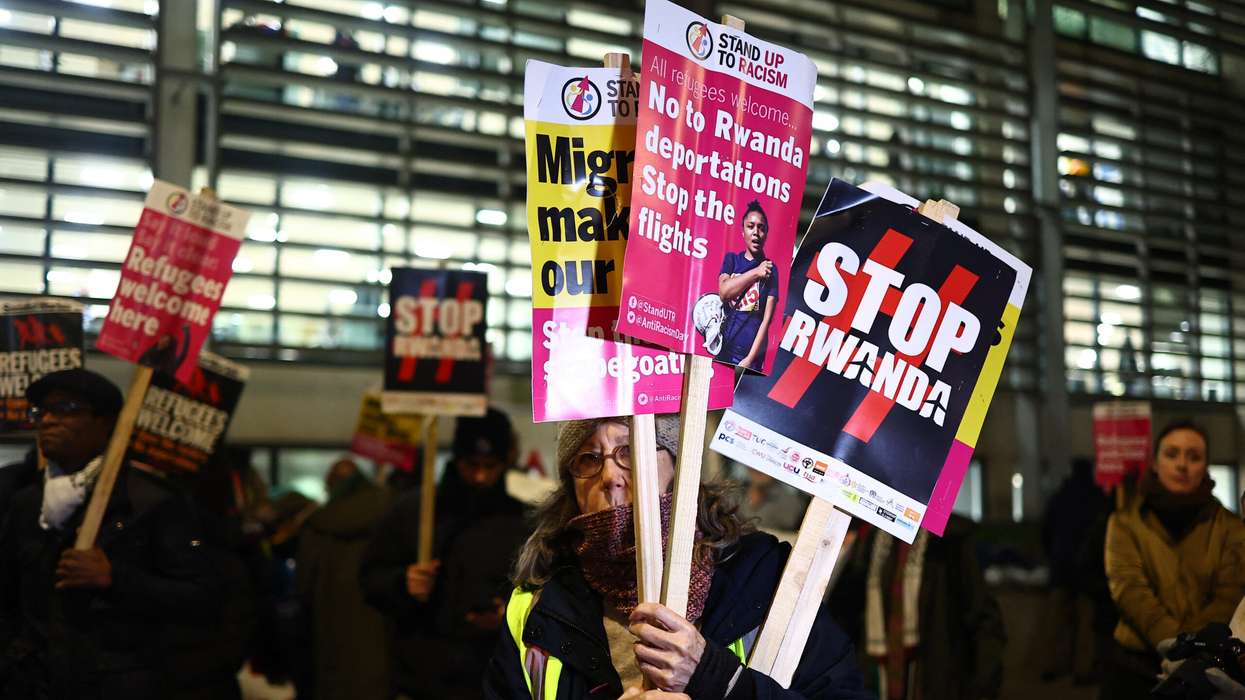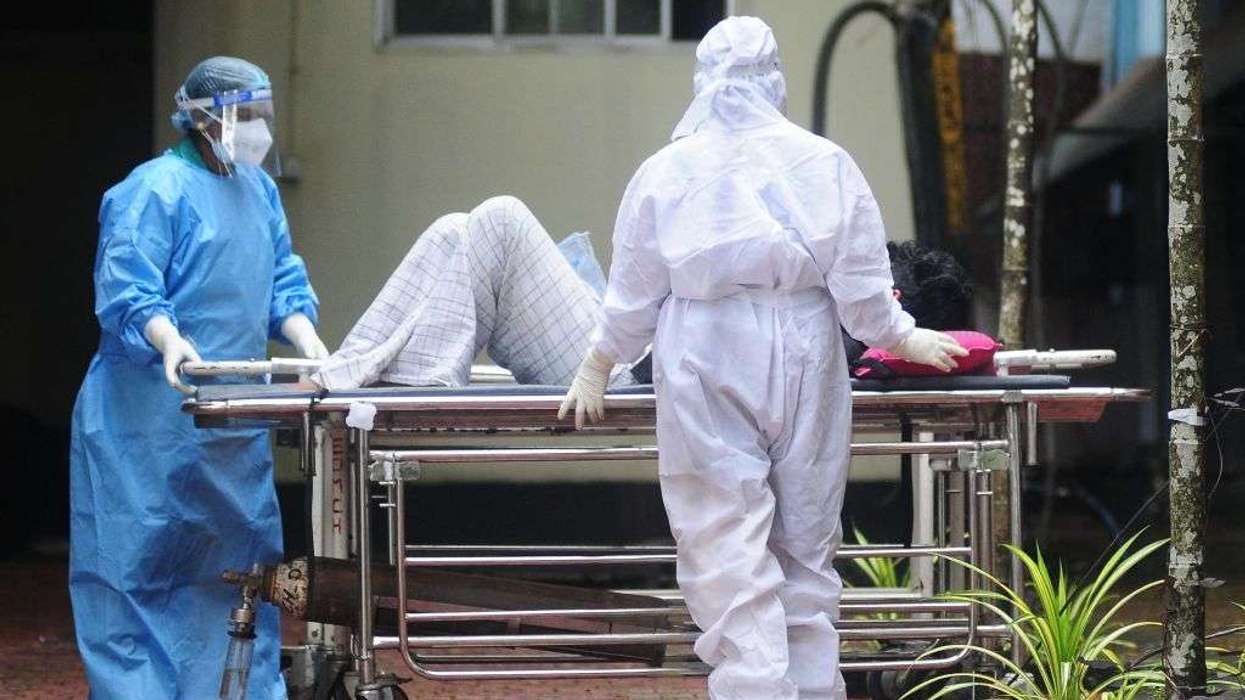EVEN as he holds late night cabinet meetings to plan his war in Gaza, the Israeli prime minister, Benjamin Netanyahu, is fond of ordering chicken tikka and tikka masala from an Indian restaurant in Tel Aviv called Tandoori.
“They are his favourites,” according to the restaurant’s celebrity owner, Reena Pushkarna, “but no coriander – he is allergic to coriander.”
This is one of the little takeaways from a visit to Israel last week by an Indian journalistic delegation, which had an exclusive interview with Netanyahu for about 45 minutes.
It is quite clear that Netanyahu is keen to strengthen diplomatic and especially defence and intelligence ties with India. He was warmly received in India in 2018. That was a year after Narendra Modi visited Israel in 2017, the first Indian prime minister to do so.
India recognised Israel in 1950, but full diplomatic relations with exchange of ambassadors were not established until 1992. During Operation Sindoor and India’s recent conflict with Pakistan, Israel gave its full backing to Delhi.
Netanyahu’s government described the operation as a “measured and decisive response to terrorism”, adding “Israel supports India’s right for self-defence. Terrorists should know there’s no place to hide from their heinous crimes against the innocent.”
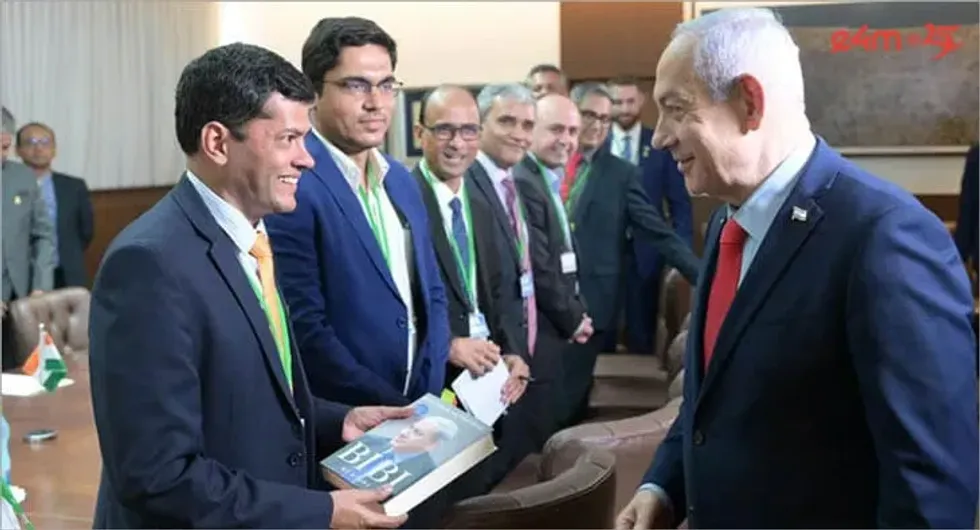
It draws a parallel with the Hamas attack on Israel on October 7, 2023, while India views terrorism through the prism of cross-border infiltration in Kashmir.
While public opinion in India appears to be against the rising civilian death toll in Gaza, Modi’s government believes its strategic interests lie in not condemning Netanyahu for what others consider to be mounting “genocide” of Palestinians.
This is the background against which Netanyahu met the Indian ambassador in Tel Aviv, JP Singh, last week.
Afterwards, Netanyahu posted a message on X: “I met today in my office in Jerusalem with the Ambassador of India to Israel, JP Singh. We discussed strengthening and expanding cooperation between Israel and India, particularly in the fields of security and economics – an important partnership based on shared values and interests. Afterwards, I held a meeting with a group of senior journalists from India and answered their questions.” According to the Indian embassy in Israel, Netanyahu “stressed the need to further deepen the India-Israel strategic partnership. Ambassador Singh conveyed the greetings of prime minister Narendra Modi and assured to strengthen the positive trajectory of the bilateral relations between India and Israel.”
It was also pointed out that last month, “India’s defence secretary Rajesh Kumar Singh held a bilateral meeting with the director general of the Israel ministry of defence, Amir Baram, in New Delhi. The two sides agreed to further strengthen bilateral defence cooperation with a long-term perspective. They concurred to work towards developing an institutional framework for further deepening of defence ties. The Israeli DG condemned the April 22 terrorist attack in Pahalgam and conveyed full support for India’s fight against terrorism.”
Bilateral trade has more than doubled since 2013, reaching $5 billion (£3.7bn) in 2024. Of the 85,000 foreign workers who arrived in Israel to replace Palestinian labour following Hamas’s attack on October 7, 2023, about 25,000 are from India.
The journalists, who visited Israel at the invitation of the Israeli embassy in Delhi, included Aditya Raj Kaul, TV9 Network; Zakka Jacob, CNN-News18; Vishnu Som, NDTV; Abhishek Kapoor, Republic TV; Siddhant Sibbal, WION; Shubhajit Roy, Indian Express; and Manash Pratim, PTI.
Kaul said Netanyahu told him that “Israel wants more Indian workers because they are sensible and Israel is trying to remove bureaucratic hurdles”.
In his report, Roy, diplomatic editor of the Express, said: “Calling Prime Minister Narendra Modi and US President Donald Trump his ‘terrific friends’, Israel’s Prime Minister Benjamin Netanyahu said that he would give Modi ‘some advice but privately’ on how to deal with Trump. At the same time, he said, ‘There is a basic understanding in the relationship between India and the US. The basis of the relationship is very solid. It will be in the interest of India and the US to arrive at a common ground and resolve the tariff issue. Such a resolution will be good for Israel as well as both countries are our friends.’ His remarks came a day after Trump doubled the tariff on India, citing its purchase of Russian oil.
“Calling for greater cooperation on intelligence sharing, countering terror and high-technology, he said he would like to ‘quickly wrap up mutual defence and economic agreements’.
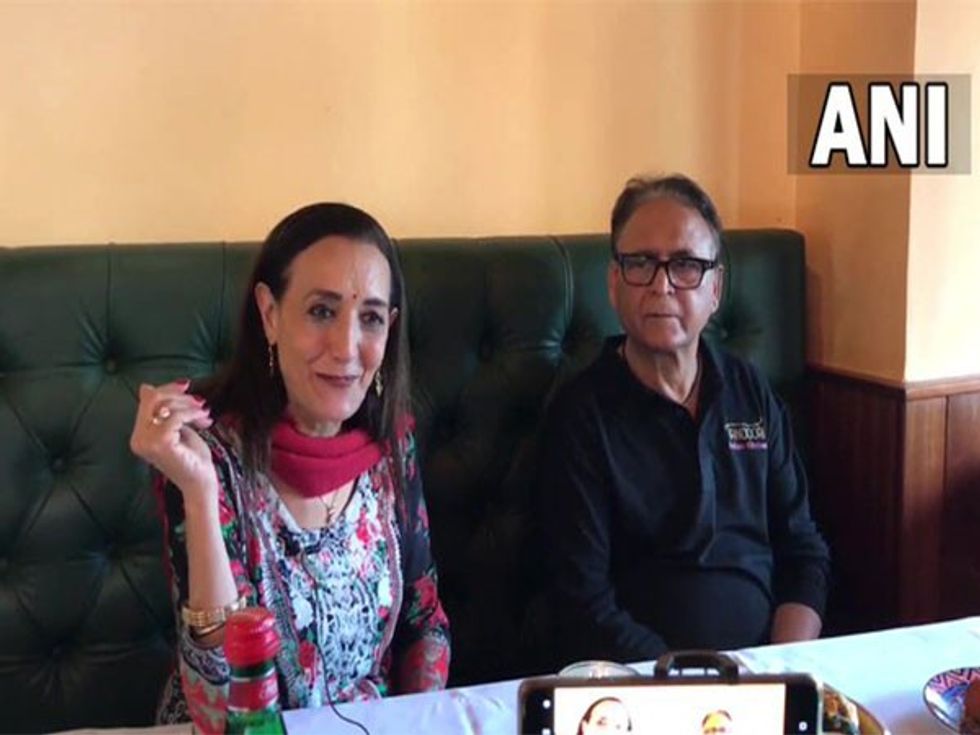
“On India-Israel defence cooperation, Netanyahu said, ‘Israel supplied military equipment to India before (Operation Sindoor). All of them worked well. Israeli equipment used during Operation Sindoor were battle proven. We don’t develop them in labs, but on the battlefield. So they are battle-tested. We have robust defence cooperation. It is on a pretty solid foundation.’
“Asked about cross-border terrorism, he said, ‘It is a problem. India is a huge country and it is not easy to have surveillance all over. We are ready to help India on air surveillance systems. Besides intelligence, we need the physical capability to get the terrorists before they strike.’”
Roy’s report went on: “On India’s ties with Israel, Netanyahu said, “Our relationship with India is very strong and I am saying this from my heart. We are seeking to seize the opportunity for the future. Under Prime Minister Modi’s leadership, India’s so-called policy of neutrality has changed and India and Israel are witnessing great friendship. I would like to come to India soon. I miss India. There is huge scope for further expanding our cooperation including in areas such as intelligence sharing, countering terrorism and high-technology. We have developed a lot of technology in screening data and social networks. We are cooperating in this domain with India as well. We would like to quickly wrap up mutual defence and economic agreements. We would like to open up the bureaucratic constraints for Indian workers and caregivers, they are beloved, they are part of our society and family. We would like to have direct flights between Tel Aviv and Bangalore, so that we can reach in six hours.’”
Another member of the delegation, Kapoor, who is executive director of Republic TV, appeared impressed with the Israeli prime minister: “Essentially what Benjamin Netanyahu said was that ‘peace has to happen on our terms’. I really liked when he said the world respects its strength, the world respects your capacity to carry your will. Everything else comes next. You have to win first and then the alignments, realignments can take place. That was my most important takeaway. He was supremely confident in his body language. We came back satisfied because he took all questions, even some critical ones.”
The enterprising Kapoor also went to Tandoori where he interviewed Pushkarna, who recalled the occasion in 2017 when Netanyahu came in with Modi for a meal. The Israeli prime minister said he hoped for “the same magic” as the time he had come in for his first date with Sara Ben-Artzi, whom he later married.
Meanwhile in India, Naor Gilon, Israel’s ambassador in Delhi, was slapped down after he objected to Frontline, an English language fortnightly published by the Hindu group, carrying comments from both Israeli sources and a Hamas spokesman.
Frontline’s editor Vaishna Roy said: “It is unprecedented and it’s not a good omen. We’re seeing a sudden rise in a certain kind of propaganda, which refuses to admit a single voice of dissent.
